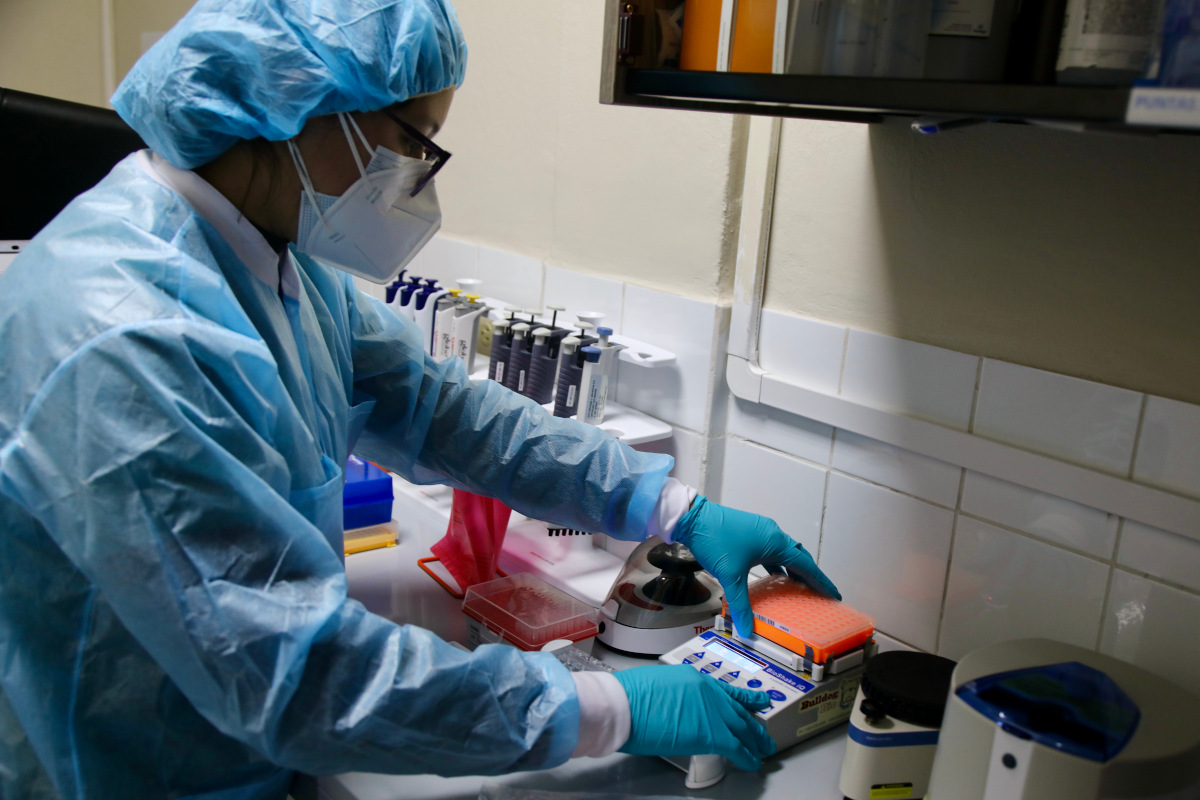Starting the antiviral drug nirmatrelvir-ritonavir (Paxlovid) 0 or 1 day after COVID-19 symptom onset halved 28-day all-cause death and hospitalization rates compared with waiting 2 or more days, University of Hong Kong researchers report in Nature Communications.
Comments closedTag: research
WHO designates JN.1 as separate COVID-19 variant of interest
Due to its rapid growth and potential to add to the respiratory virus burden in Northern Hemisphere countries, the World Health Organization (WHO) today designated JN.1, part of the BA.2.86 SARS-CoV-2 lineage, as its own variant of interest.
The announcement came following an assessment from the WHO’s Technical Advisory Group on SARS-CoV-2 evolution.
Comments closedThis COVID study has been tracking immunity for 3 years. Now it’s running out of money
A long-running study into COVID-19 immunity has unearthed promising insights on the still-mysterious disease, one of its lead researchers says — but she’s concerned its funding could soon dry up.
The Stop the Spread project, a collaboration by the Ottawa Hospital Research Institute (OHRI) and the University of Ottawa, has been monitoring antibody responses to COVID-19 in hundreds of people since October 2020.
Comments closedStudy shows long COVID worse for patients than ‘long flu’
In the 18 months after a serious COVID-19 or seasonal influenza infection, patients are at a significant increased risk of death, hospital readmission, or health problems affecting a number of organs, though COVID patients are hit harder, according to a study published yesterday in The Lancet Infectious Diseases.
The study was led by Ziyad Al-Aly, MD, the chief of research and development at the VA St. Louis Health Care System and a clinical epidemiologist at Washington University. Al-Aly has been studying long COVID for the past 3 years, and has been interested in studying the differences between the acute and chronic phases of the disease.
Comments closedLe mystère entourant la COVID longue limite les capacités de traitements
Four years after the first cases of what was later called COVID-19, infections continue to spread and lead to new cases of long COVID. However,…
Comments closedMedicago : Mitsubishi Chemical redonne 40 M $ et transfère la propriété intellectuelle
The Government of Canada has reached an agreement with Mitsubishi Chemical Group Corporation (MCG), Medicago’s parent company. This company will have to pay $40 million in addition to transferring the intellectual property developed by Medicago to the new Quebec company Aramis Biotechnologies.
Comments closed1 in 9 Canadians have had ‘long COVID’: StatCan
About one in nine Canadian adults have had long-term symptoms from COVID-19 infection, according to a Statistics Canada report issued Friday.
That amounts to 3.5 million Canadians, it said.
Almost 80 per cent of those people with long-term symptoms have them for six months or more, the report said.
In addition, more than half of those who ever had long-term symptoms still had them as of June 2023.
Comments closedLes maladies post-infection, comme la COVID longue, plus fréquentes qu’on le pense
Early in the pandemic, scientists warned that COVID-19 could cause long-term sequelae even after a mild infection. After all, at least a dozen other known pathogens cause post-infection syndromes. Why didn’t we see this problem coming, and possibly prevent millions of people from developing long COVID?
Comments closedCOVID-19 late in pregnancy linked to severe maternal health problems
A study yesterday in Open Forum Infectious Diseases shows women who have COVID-19 infections within a week before giving birth are at an increased risk for severe maternal morbidity (SMM) events, including acute renal failure and adult respiratory distress syndrome (ARDS).
Comments closedStudy: School air sampling worked as well as other methods in tracking COVID, flu
Air sampling was as effective in monitoring COVID-19 and influenza A (IAV) activity as three other methods in a Wisconsin school district from September 2022 to January 2023, according to a study published today in JAMA Network Open.
Comments closedSmall study finds brain alterations after COVID Omicron infection
Researchers in China report thinning of the gray matter and other changes in certain parts of the brain in 61 men after COVID-19 Omicron infection.
For the study, published late last week in JAMA Network Open, the researchers evaluated 61 men before and after infection with the SARS-CoV-2 Omicron variant in January 2023. The men had been part of a larger cohort who had undergone magnetic resonance imaging (MRI) and neuropsychiatric screenings before infection in August and September 2022. Average age was 43 years.
Comments closed‘Dramatic’ increases in younger Canadians’ deaths contributed to our reduced life expectancy
Amid a declining life expectancy across the country, new national data released this week show that years on from the beginning of the pandemic, COVID-19…
Comments closedMeta-analysis reveals high rates of heart complications in long-COVID patients
A review and meta-analysis of long-term cardiac complications of long COVID finds a high prevalence of chest pain and abnormal heart rhythms (arrythmias).
Comments closedStudy estimates 2 COVID vaccine doses 40% effective against emergency, hospital care in young kids
Two doses of a COVID-19 mRNA vaccine were 40% effective against emergency department (ED) visits and hospitalization in preschool-aged children during a period of Omicron variant predominance, estimates a test-negative, case-control study using data from the New Vaccine Surveillance Network (NVSN).
Comments closedCOVID-19: Peterborough risk index still high as 1 death, 11 active outbreaks reported
For the fifth consecutive week, the community risk index for COVID-19 for the Peterborough, Ont., region remains at a high level, public health officials report.
Comments closedIt’s not the quarantine that made so many other diseases surge: It’s the COVID
The world is nearly four years into the COVID-19 pandemic, but how the SARS-CoV-2 virus damages human lives, both in the short term and across a span of years, is still becoming clear. Earlier this month, a study in Lancet showed that 54% of those infected in the first months of the pandemic were still experiencing symptoms over three years later.
Comments closed


